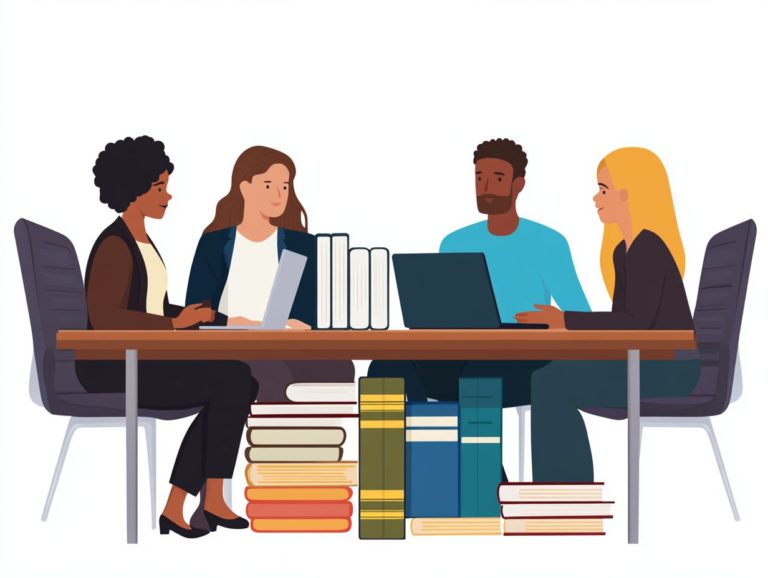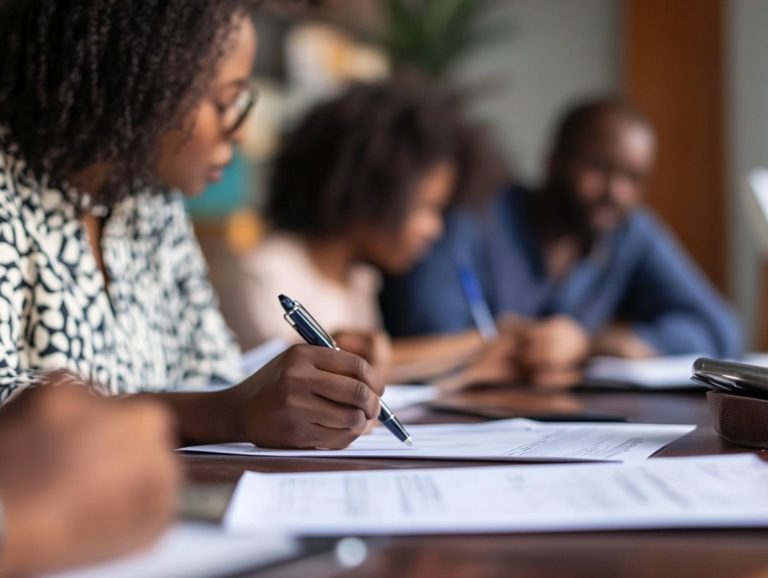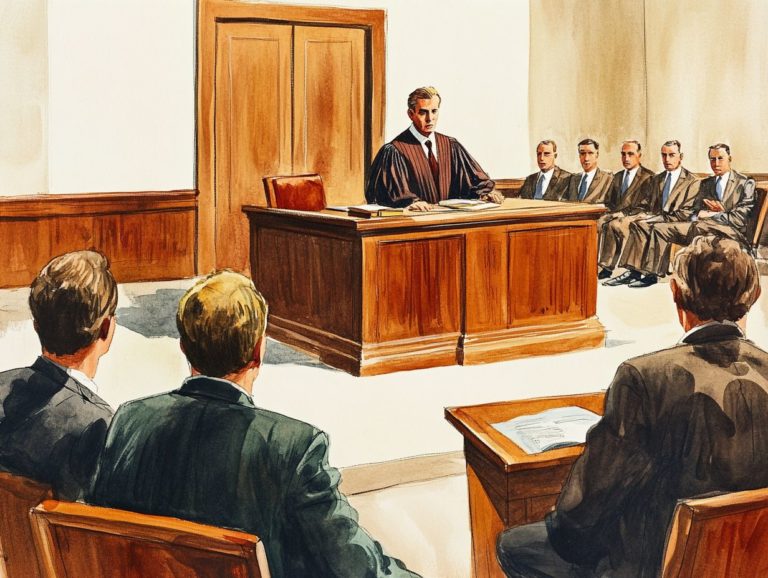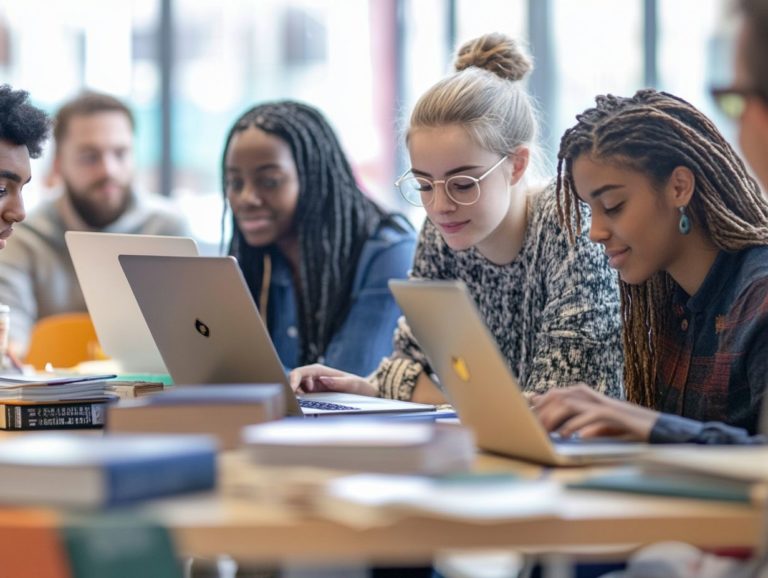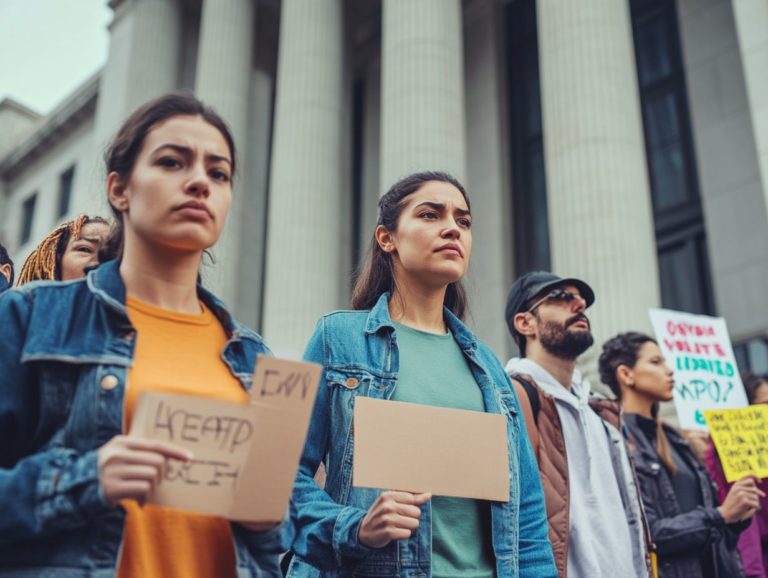The Right to a Fair Trial Explained
Justice stands as a cornerstone of any democratic society, yet its true essence relies heavily on the integrity of the legal process. A fair trial is not merely a legal formality; it’s an essential human right that affords you the opportunity to defend yourself against accusations.
This article delves into the significance of a fair trial, its foundational principles, and the challenges that jeopardize its integrity. By exploring landmark cases and the roles of judicial and legal professionals, you will discover how this vital right can be protected and upheld in today’s complex legal landscape.
Contents
Key Takeaways:
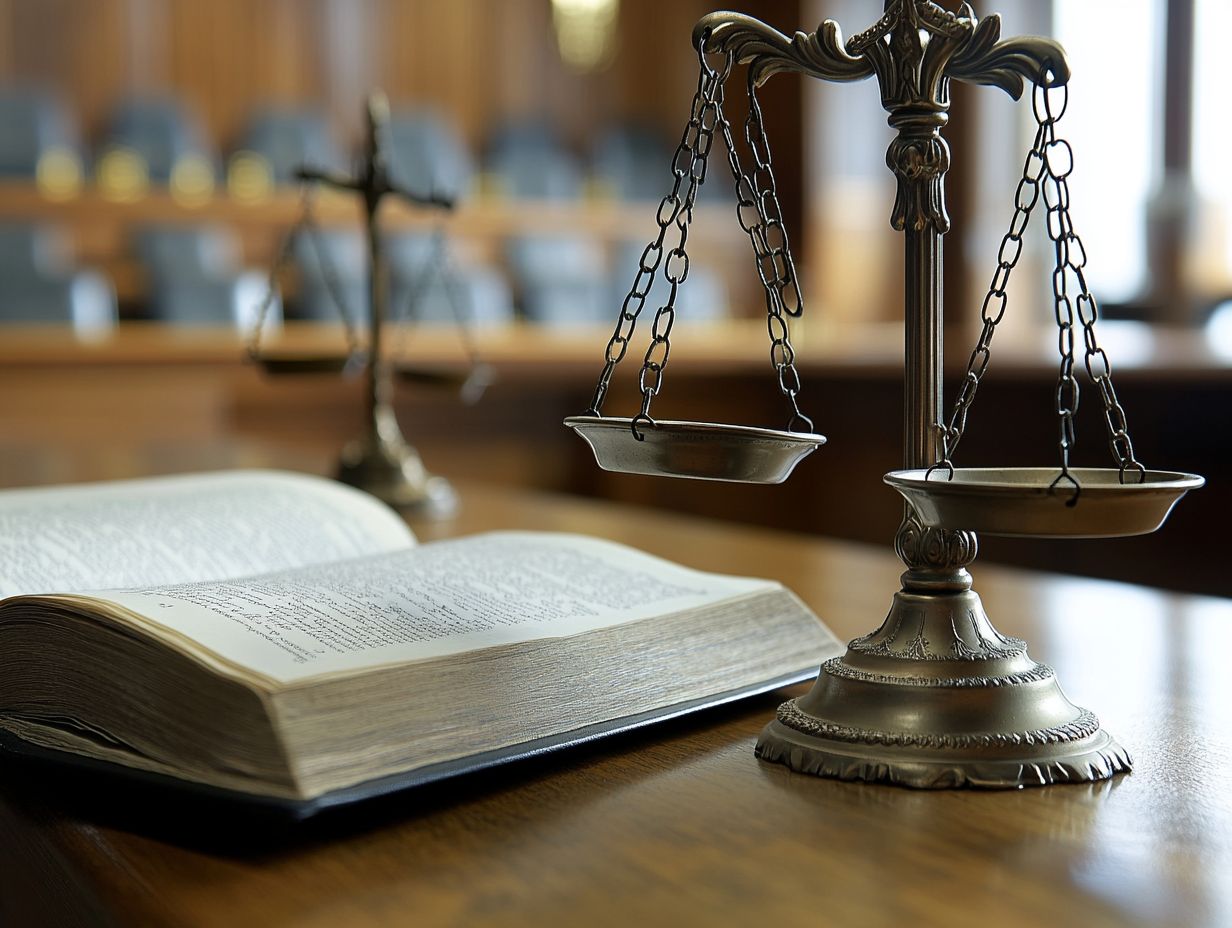
A fair trial is crucial for ensuring justice is served and for upholding the principles of a fair legal system. The right to a fair trial is a fundamental human right rooted in various international and national laws, including the U.S. Constitution. Upholding key principles such as being fair and unbiased (impartiality), and ensuring fair treatment through the legal system (due process) is essential for guaranteeing a fair trial.
The Importance of a Fair Trial
A fair trial is vital it s your shield in the legal world. It stands as a cornerstone of the criminal justice system and is a critical component of fundamental rights recognized worldwide.
A fair trial ensures you are treated equally before the law. It grants you essential legal assistance and representation. This principle is firmly established in various international treaties, such as the Universal Declaration of Human Rights and the International Covenant on Civil and Political Rights (ICCPR), both of which advocate for your right to a fair trial.
Without these vital safeguards, the integrity of the legal process is at risk. This can lead to wrongful convictions and eroded public trust in the judicial system.
Why a Fair Trial is Essential for Justice
A fair trial is essential for your sense of justice. It embodies the foundational principles of the presumption of innocence and the right to be heard by an independent tribunal. These principles are crucial for maintaining public confidence in the legal system.
This judicial process safeguards your individual rights. It also serves as a bulwark against potential governmental abuses of power. By ensuring that you, or anyone accused, has access to legal representation and a trial that adheres to established judicial standards, a fair trial proves that justice is not merely a privilege for the few, but a fundamental right for all.
Frameworks like the Universal Declaration of Human Rights and the Sixth Amendment of the U.S. Constitution emphasize these tenets. They underscore the belief that every individual deserves the opportunity to defend themselves in a fair setting.
This, in turn, cultivates a society where you and your fellow citizens feel protected and valued, knowing that accountability is upheld through impartial legal processes.
The Right to a Fair Trial
The right to a fair trial stands as a fundamental human right. It is enshrined in numerous international legal frameworks, including the European Convention on Human Rights and the International Covenant on Civil and Political Rights.
This right encompasses various aspects of criminal procedure, meticulously designed to safeguard individuals throughout the legal process.
You benefit from essential safeguards such as access to legal representation, the presumption of innocence, and the assurance of a public hearing presided over by an impartial judge. Upholding these standards is vital for ensuring that justice is not merely done, but is also perceived to be done. This fosters public trust in the legal system.
Don t wait until it s too late; understand your rights now! Join us on this journey to understand and advocate for your rights!
What it Means and Where it Comes From
The right to a fair trial has its roots in historical documents like the Magna Carta, which laid the groundwork for individual rights. It has since evolved through important international agreements, especially Article 6 of the European Convention on Human Rights.
This fundamental right has been shaped by many judicial interpretations and legislative reforms aimed at making justice accessible to everyone. Originally, it provided individuals a transparent chance to contest accusations. Now, it also includes essential supports, such as legal assistance for defendants, emphasizing that legal representation is vital for a just outcome.
International organizations like the United Nations and the International Criminal Court have played a crucial role in promoting and protecting this right globally. Their efforts enhance trust in legal systems worldwide and encourage confidence among citizens in the fairness and integrity of the judiciary.
Principles of a Fair Trial
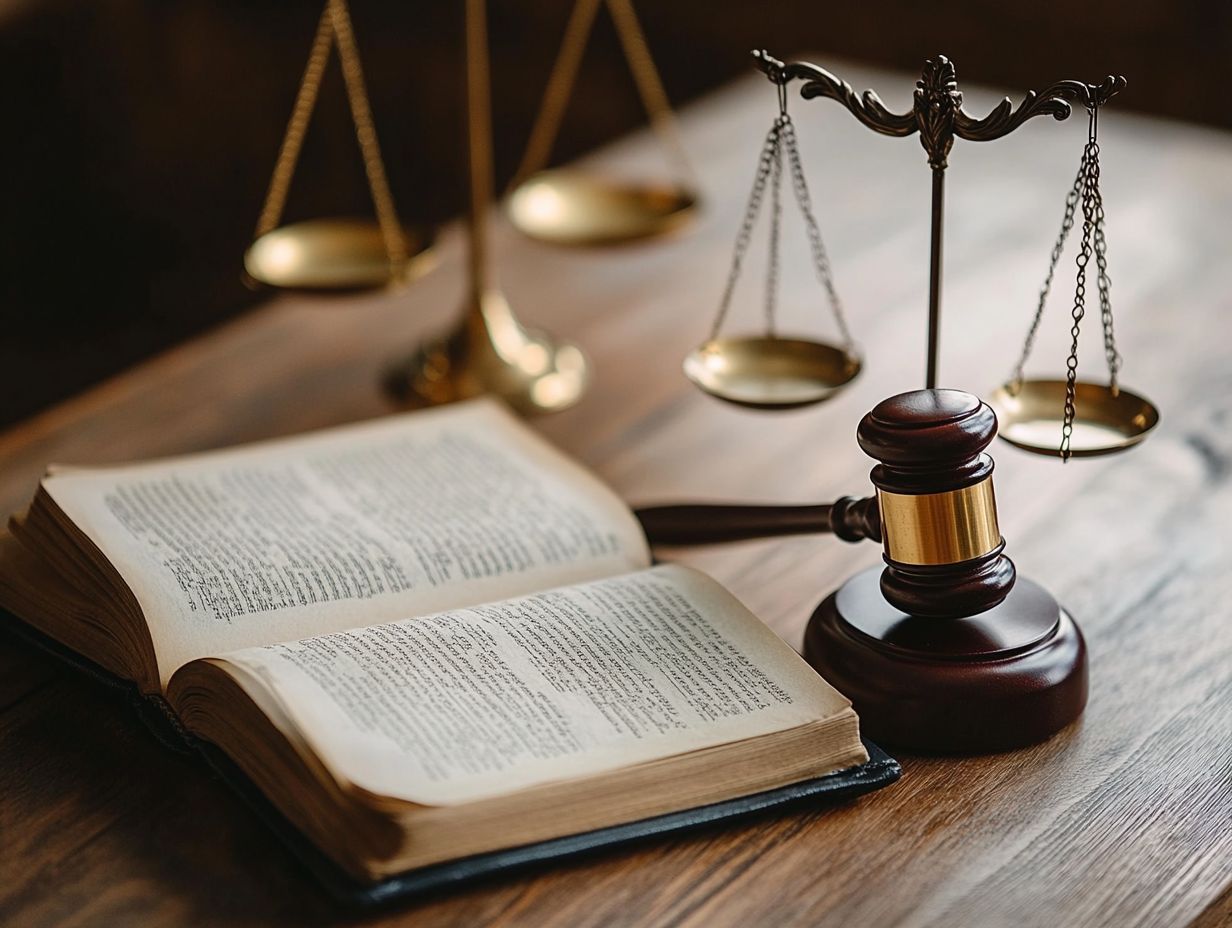
Fair trial principles protect your rights and ensure justice is delivered impartially.
These principles include:
- Presumption of innocence
- The right to an impartial judge
- The obligation to receive legal assistance
These elements are crucial for maintaining due process.
The standard of proof required in criminal cases safeguards against wrongful convictions, reinforcing the idea that everyone is equal before the law. These principles are recognized globally and are important for trust in legal systems everywhere.
Key Elements for a Fair Trial
Key elements for a fair trial include:
- Access to legal aid
- A public hearing
- The provision of an independent tribunal
Together, these components ensure you receive fair treatment in the legal system. They protect your rights as a defendant and enhance the integrity of judicial processes across jurisdictions.
For instance, legal aid is vital in leveling the playing field, especially for those who cannot afford representation. In the UK, legal aid ensures that even disadvantaged individuals can defend their rights effectively.
Public hearings promote transparency, allowing you and the community to observe judicial proceedings and hold the system accountable just look at the open court policy in many democratic nations.
However, challenges such as budget constraints on legal aid programs and biases in tribunal appointments can threaten these essential elements.
When fairness is compromised, it leads to wrongful convictions and a significant loss of public trust in the judicial system.
Challenges to a Fair Trial
Despite established legal frameworks protecting the right to a fair trial, numerous challenges persist. These threaten the integrity of the judicial process and undermine human rights.
Obstacles often arise from systemic issues within the criminal law framework, including inadequate legal representation and biases in the judicial system that create barriers to justice.
External pressures such as political influence and social stigmas can also hinder the fair application of justice, putting the fundamental principles of a fair trial to the test.
Obstacles and Threats to Fairness in the Legal System
Obstacles to fairness in the legal system appear as biases, systemic inequalities, and human rights violations that hinder access to justice.
Research shows that racial bias can distort perceptions of guilt or innocence, particularly impacting marginalized communities.
Socio-economic disparities create an imbalance in representation, leaving individuals from lower-income backgrounds struggling to find adequate legal counsel.
Political factors, including legislative influences and law enforcement practices, significantly shape defendants’ experiences.
To address these challenges, it is crucial to implement comprehensive training for law enforcement and judicial personnel focused on bias awareness.
Establishing community legal aid services and reforming prosecutorial practices can enhance equity, ensuring everyone, regardless of their background, receives a fair trial.
Ensuring a Fair Trial
Ensuring a fair trial hinges on your active engagement as a member of the judiciary and the legal profession. It is essential to maintain the safeguards designed to protect individual rights and uphold the integrity of the legal process.
The judiciary has a crucial responsibility in conducting trials impartially and adhering to established legal standards. Legal professionals also play an essential role in safeguarding their clients rights throughout the proceedings.
This collaboration creates a legal system that promotes fairness, fosters trust, and champions accountability.
Role of the Judiciary and Legal Professionals
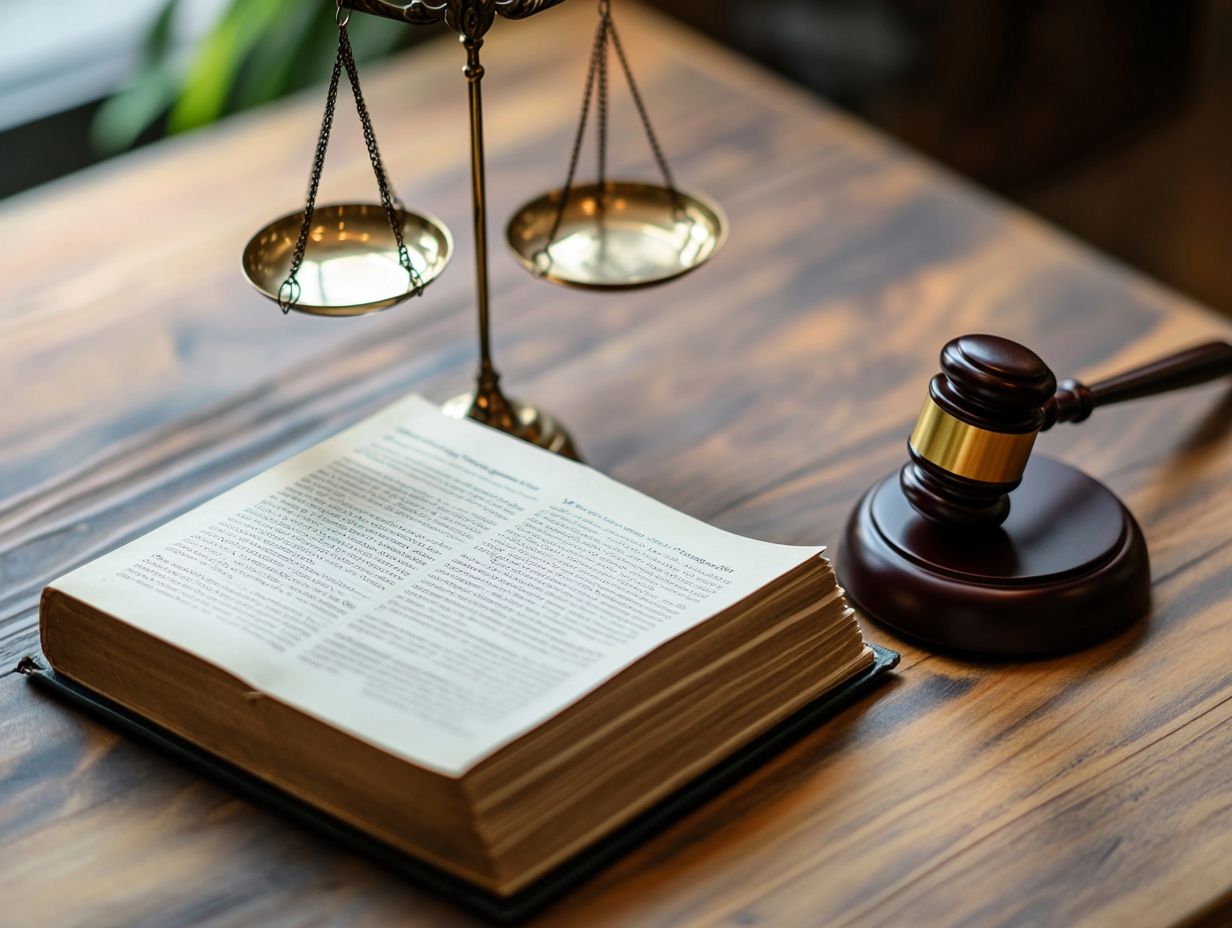
The judiciary and legal professionals hold a vital position in upholding due process, ensuring that you receive adequate legal representation throughout your trial.
This responsibility includes understanding the legal rights of everyone involved. Effective judges adopt an impartial stance while overseeing proceedings, ensuring that all voices, including yours, are heard and considered.
Legal practitioners are dedicated to advocating for your best interests, skillfully navigating complex legal frameworks, and offering sound advice.
Together, they help create a transparent judicial process where fairness reigns.
To maintain this balance, continuous training and a commitment to rigorous ethical standards are essential. This creates a vibrant atmosphere where justice truly matters for all participants.
Landmark Cases on the Right to a Fair Trial
Landmark cases concerning the right to a fair trial have profoundly influenced the legal landscape. They set vital precedents that bolster judicial guarantees and human rights.
These cases exemplify the principles of fairness, due process (which means fair treatment through the normal judicial system), and the critical importance of legal representation. They serve as essential benchmarks for future legal interpretations and applications, demonstrating how courts have upheld the right to a fair trial in various contexts.
In doing so, they address the intricate complexities of legal proceedings and underscore the necessity for accountability.
Examples of How the Right to a Fair Trial Has Been Upheld or Challenged
Examples of how the right to a fair trial has been both upheld and challenged offer valuable insights into the ever-evolving landscape of criminal law and the ongoing quest for justice.
These instances range from landmark legal decisions to notorious trials that have captivated international audiences. Courts that decisively rule in favor of defendants facing biased judges or inadequate legal representation highlight the essential nature of impartiality within the judicial process.
Conversely, high-profile cases where public opinion overshadows legal standards reveal how societal pressures can complicate the pursuit of justice.
International scrutiny often adds layers of complexity; when a trial draws global attention, it can lead to increased demands for transparency, as seen in various human rights discussions.
These dynamics underscore that the right to a fair trial is not merely a legal principle but a reflection of society’s values and priorities.
Frequently Asked Questions
What is the right to a fair trial?
The right to a fair trial is a fundamental human right that guarantees every individual accused of a crime the right to a fair and impartial legal process.
Why is the right to a fair trial important?
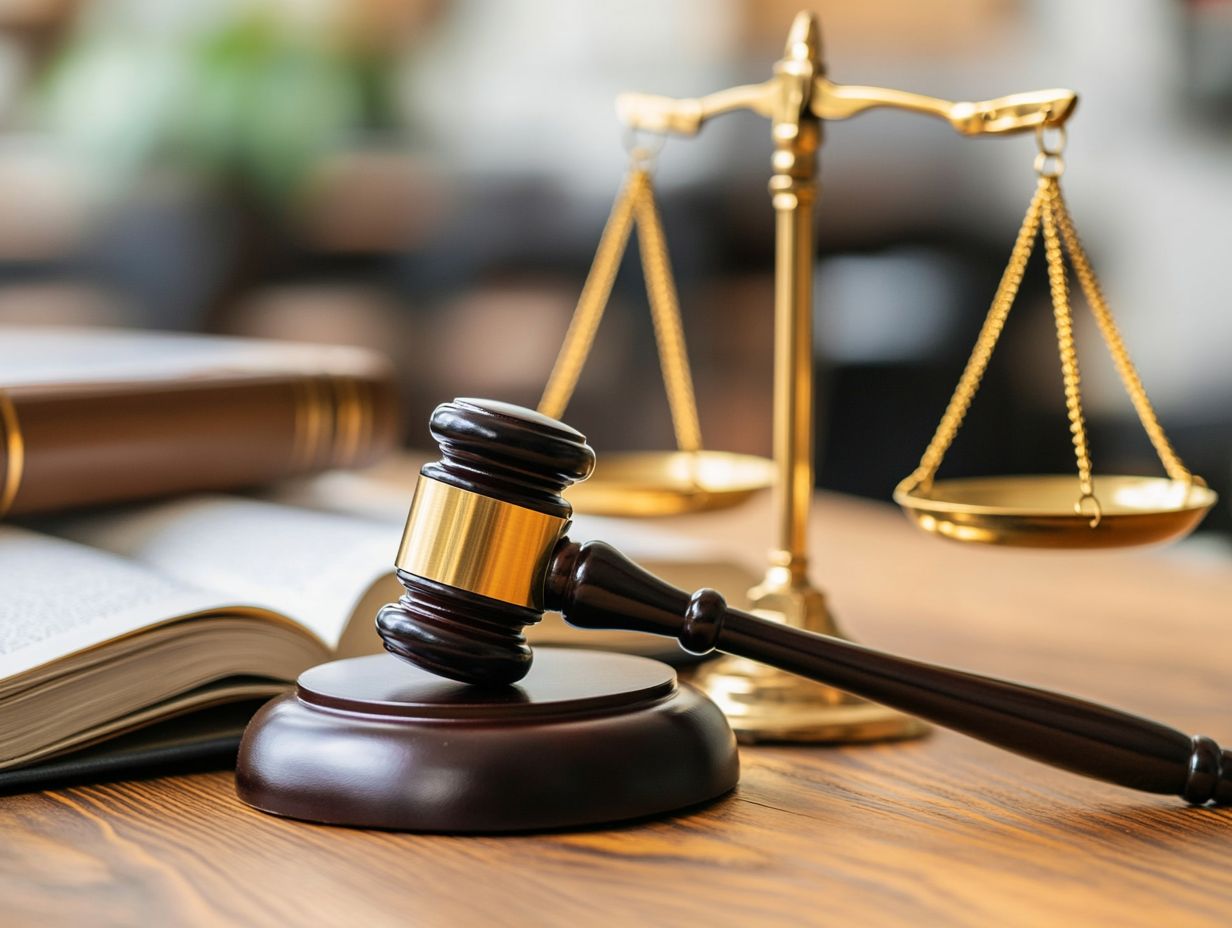
The right to a fair trial is important because it protects the accused from being subjected to unfair or biased legal proceedings that could result in wrongful conviction or denial of justice.
What are the key components of a fair trial?
The key components of a fair trial include:
- The presumption of innocence
- Access to legal representation
- The right to a public trial
- Impartial and unbiased judges
- The opportunity to present evidence and defend oneself
Who is entitled to the right to a fair trial?
The right to a fair trial is a universal human right and is entitled to every individual, regardless of their race, ethnicity, religion, gender, or social status.
Stay informed as laws evolve to protect your rights!
How does a fair trial benefit society?
A fair trial upholds the rule of law and ensures everyone gets equal justice.
This builds trust in the legal system and helps prevent wrongful convictions.
What can I do if my right to a fair trial is violated?
If you think your right to a fair trial has been ignored, seek legal help immediately.
Document any evidence and consult a lawyer for guidance on your next steps.

